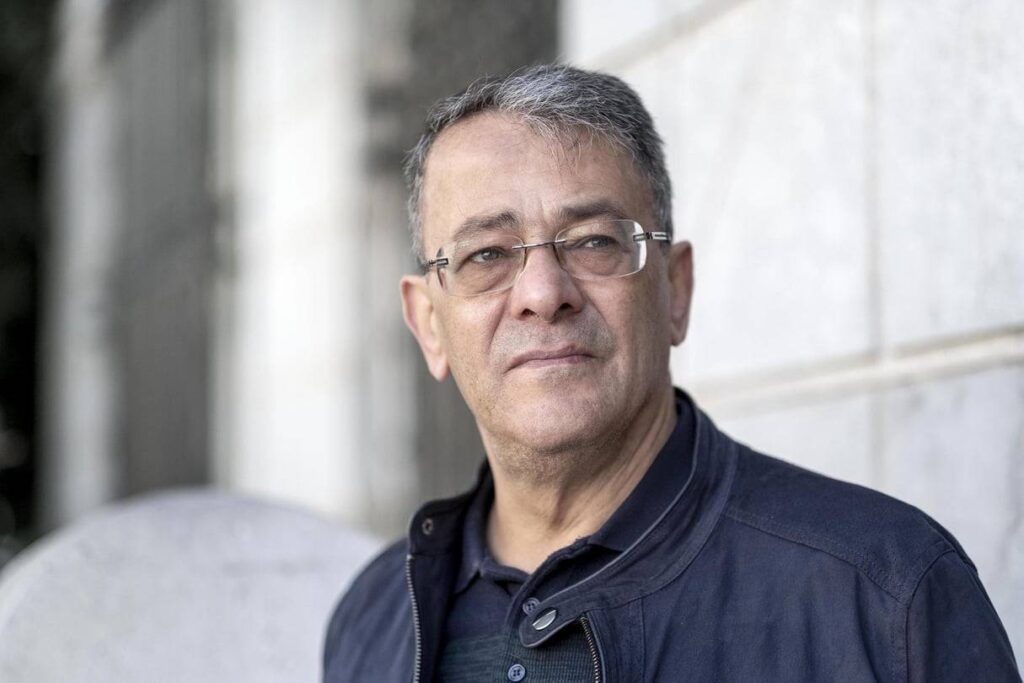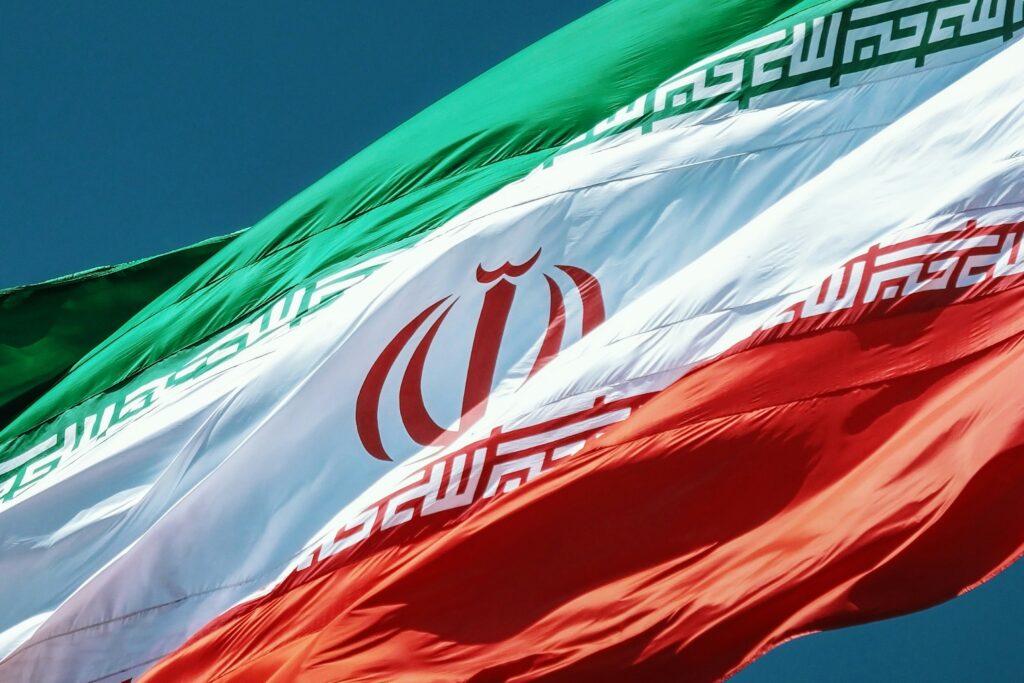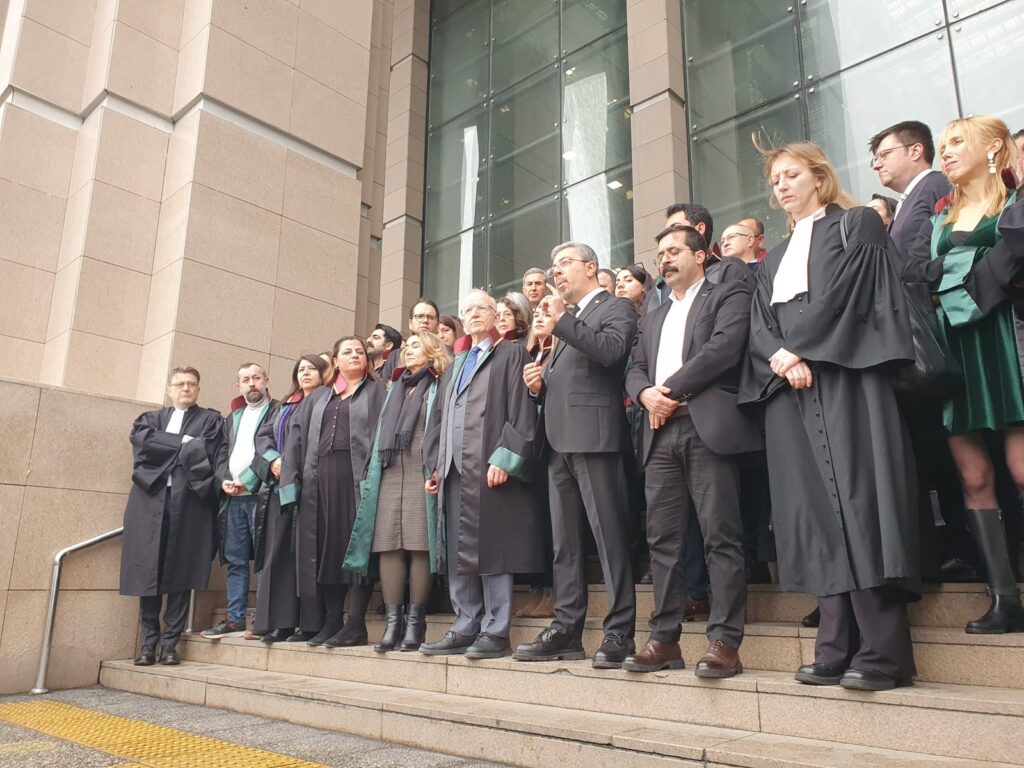For both his safety and that of his clients, the lawyer featured in this interview has asked to remain anonymous. The name “Mr. Stone” used throughout the article is therefore an alias.
Championing Justice: Mr. Stone’s Commitment to Human Rights in Nigeria
Mr. Stone is a lawyer (attorney at law) and legal researcher from Nigeria, specialising in the defence of victims of human rights violations, alongside his corporate and criminal affairs. Over the past few years, the defence of individuals with an LGBTQIA+ identity has taken a front-row seat in his activity, with him claiming: “I take up these cases because it means fighting for my society. If I don’t do it, then these rights won’t be protected, and people will continue to suffer greatly because of it. It is my duty.”
The situation of LGBTQIA+ rights in Nigeria: a difficult situation for the legal profession
The situation for the LGBTQIA+ community in Nigeria is precarious as same-sex sexual activity is prohibited under the Criminal Code Act and the 2013 Same-Sex Prohibition Act (SSMPA). The latter does not only criminalise same-sex sexual activity, but also any LGBTQIA+ advocacy, including mandatory registration for queer clubs, societies or organisations. This makes the work of lawyers an incrementally perilous feat as the carrying out of their professional duties, defence of their clients, may come to be seen as “advocating” for LGBTQIA+ rights and thus criminalised. This therefore stands in stark violation of Principle 16 of the UN Basic Principles on the role of Lawyers. Sharia law, recently re-implemented in some of the predominantly Islamic Northern states of Nigeria, goes as far as to impose “death by stoning”, in certain instances for same-sex sexual activity. Furthermore, transsexuality is criminalised by both Sharia law and Christian dogmatism, making it significantly stigmatised within Nigerian society, rendering their defence and representation a socially and legally challenging feat. In general, individuals identifying, or identified, as members of the LGBTQIA+ community are frequently subjected to arbitrary arrest, discrimination and violence. The frequency of these attacks as well as the stigmas and social hostility, has created significant obstacles to the work of lawyers including that of Mr. Stone.
In relation to such attacks, Mr. Stone has been working on several cases related to LGBTQIA+ rights. Through this work, him and his colleagues have been able to further the recognition of rights for the LGBTQIA+ community through the courts. Mr. Stone shared one of these stories, pertaining to the fundamental rights of a group of five lesbian women being acknowledged and respected. In this case, despite the police trying to charge these women for publicly professing their sexual orientation, the High Court affirmed that one’s gender identity is not a crime, being a lesbian does not constitute a crime in Nigerian law, and that the announcement of one’s sexual orientation cannot lead to criminal reprisals. This constituted an important first step in the affirmation of the right to private life in Nigeria and served to encourage others whose rights had been abused to speak up and trust in the potential of justice.
Stigmatisation in and beyond the Court: Threats Faced by Lawyers Advocating for LGBTQIA+ Rights
Mr. Stone shared the many challenges he faces in his work as a lawyer; guaranteeing the rule of law and protecting his clients’ right to a fair trial, amongst such challenges, stigmatisation plays a central role.
Discrimination, social aversion towards the LGBTQIA+ community, and the ensuing stigmatisation has severe consequences on the respect of the rights of these individuals, but also on their lawyer’s capacity to execute their profession freely and effectively. Mr. Stone expressed the inequality in treatment him and his colleagues representing LGBTQIA+ individuals have been victims of, highlighting how, whilst the preliminary assumption in court is that of a lawyer having the duty to defend all individuals irrespective of their situation, and to do so adequately, when representing individuals with an LGBTQIA+ identity, this basic hypothesis is not respected. Mr. Stone claimed that “when you represent a murderer the court will not believe that you yourself are a murderer, but when you represent a member of the LGBTQIA+ community you will be seen as you yourself being part of that community as well. This will then influence their whole decision and the image they have of you.” Mr. Stone shared how this meant their ability to guarantee a fair trial for their client is overshadowed by these underlying biases; how society’s, and judges’, personal beliefs intrude the courtroom and judgments. Mr. Stone exemplifies this by sharing how legal arguments in court are sometimes centred on discrediting the lawyer. He further shared how this did not only occur in cases concerning gender and sexual identity but also in cases isolated from this plight, when opposing counsel, knowing that the judge and/or audience are for example very religious, used the lawyer’s past work on LGBTQIA+ cases to discredit them. Opposing counsel has often referred to him as the “gay lawyer” in court – showcasing his identification with the plight of his clients and the violation of Principle 18 of the Basic Principles.
According to Mr. Stone, the difference in treatment of lawyers representing LGBTQIA+ cases does not seem to stop in the courtroom but extends to the police system. Mr. Stone notably shared how this stigmatisation impaired his credibility as a lawyer: “The truth is, if you’re a lawyer representing such cases, you must always be very careful. If the police assumes that you and your client share the same identity, they will threaten you with arrest alongside your client.” The violation of Principle 18 therefore goes further than not being able to execute one’s profession but puts lawyers at risk of arbitrary arrest and judicial repression whilst defending their clients, leading to a violation of Principle 16 as well.
On top of the difficulties stigmatisation creates for lawyers in a professional setting, it also follows them outside the courtroom. Mr. Stone’s personal life suffers from the daily pressure and challenges that he endures in delivering his professional duties in these sensitive cases. He describes how he needs to fight cultural perceptions that people have of him, seeping through to his family who is consequently also perceived as being queer. Given the social stigma in Nigeria, this can lead to dangerous situations, including harassment and threats. However, Mr. Stone explained how when one takes on this fight, one knows there is no escaping the stigmatisation, it is something that comes with, which you must come to accept because of the importance of the work you are doing.
Changing the Narrative: A Growing Movement for LGBTQIA+ Legal Defence in Nigeria
Despite such challenges, a growing number of lawyers are taking up these cases in Nigeria. Mr. Stone shared how he is witnessing some real change within the Nigerian legal community, a growing willingness to take up the defence of these marginalised populations and fighting for the right to justice for all. Through the successes of their litigation, it is not just the lawyers, but also the clients who feel more inclined to come forth with their stories. Mr. Stone says that “over time, we have been able to create a climate where victims are more willing to come forth.” He gives several reasons for the rise of this safer climate. Firstly, the international community putting more safeguards and guarantees on the rights of the LGBTQIA+ community has seeped through. Several international programs, like ISLA from South Africa, and SANEDIA, are advocating for LGBTQIA+ rights through trainings and workshops, providing the necessary education on this topic. Additionally, strategic litigation on LGBTQIA+ issues has had some successes, leading the courts to take a more favourable stance on topics like gender identity and sexual orientation. Mr. Stone describes how the consistent engagement with these cases has ultimately led to some unique successes. Through the continuous efforts of the legal community; in defending and educating, he shared how change is possible.
By sharing stories like that of Mr. Stone, Lawyers for Lawyers aims to raise awareness about the brave lawyers who stand up for the rights of marginalised and stigmatised individuals, to ensure access to justice for all, regardless of their sexual orientation or gender identity. The Access to Justice Campaign, launched on May 16th 2024, seeks to raise awareness about the challenges lawyers face in ensuring access to justice for all, notably, members of marginalised and stigmatised communities like that of the LGBTQIA+ community. Mr. Stone’s story is proof of the crucial role lawyers play in the access to justice for all, but also the numerous challenges they are faced with in the deliverance of this mission, and their need for greater international and institutional support.
Illustration: Elisabeth van der Spek.



